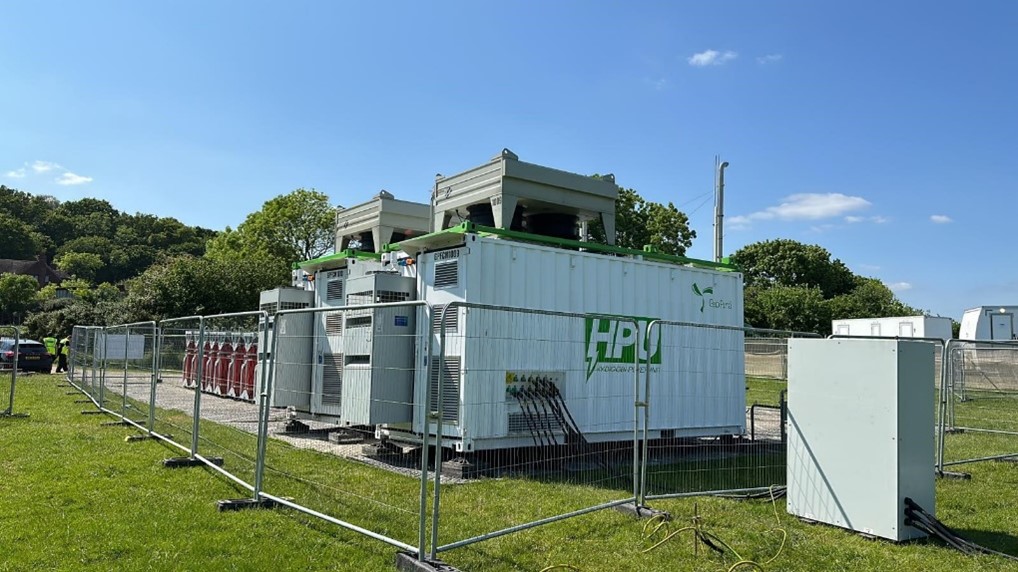In an era where electricity is a necessity, diesel generators have long served as reliable power sources. However, not only do diesel generators have a detrimental environmental impact, but they also pose significant health risks and expose operators to potential liabilities.
Diesel generators have been favoured for their portability, making them an attractive choice for backup power or remote locations. However, they emit pollutants that pose serious health risks to both individuals in proximity to the generators and the broader public.
- Particulate Matter (PM) Pollution:
Diesel generators emit high levels of particulate matter, including fine particles known as PM2.5 and ultrafine particles. Highlighted in The Lancet (i), these tiny pollutants, often invisible to the human eye, penetrate deep into our lungs, causing respiratory issues, aggravating asthma, and increasing the risk of cardiovascular diseases.
- Nitrogen Oxides (NOx) Emissions:
Diesel generators are notorious for releasing nitrogen oxides, primarily in the form of nitrogen dioxide (NO2). Exposure to NO2 causes respiratory problems, lung inflammation, and increased susceptibility to respiratory infections (ii).
- Toxic Air Contaminants:
Apart from PM and NOx, diesel generators emit various toxic air contaminants, such as benzene, formaldehyde, and polycyclic aromatic hydrocarbons (PAHs). Prolonged exposure to these substances has been shown to lead to cancer, neurological disorders, and other severe health complications (iii).

The Link Between Diesel Generator Emissions and Health:
Extensive research has been conducted to assess the impact of diesel generator emissions on air quality and human health. The UK Health and Safety Executive (HSE) emphasises the risks of exposure to diesel engine exhaust emissions, particularly for workers in enclosed or poorly ventilated areas.
- Respiratory Issues:
The UK’s Department for Environment, Food and Rural Affairs (DEFRA) identifies diesel exhaust emissions as a significant contributor to air pollution. Studies have demonstrated a clear association between diesel exhaust exposure and an increased risk of respiratory symptoms, reduced lung function, and the development of respiratory diseases.
- Cardiovascular Effects:
Long-term exposure to diesel exhaust has been linked to an elevated risk of cardiovascular diseases, including heart attacks, strokes, and hypertension.
- Cancer Risk:
The International Agency for Research on Cancer (IARC) has classified diesel engine exhaust as a Group 1 carcinogen, indicating that it is a definite cause of cancer in humans, particularly lung cancer.
As we understand more about the adverse effects of diesel generators on air quality and human health, it is crucial to address the potential liability risks that companies and employers face when exposing their staff and the public to emissions from these generators. Beyond the ethical implications, failing to mitigate these risks can lead to legal and financial consequences.

Understanding the Liability Risks:
Exposing staff and the public to emissions from diesel generators can result in several liability risks for companies and employers.
- Occupational Health and Safety:
Under the Health and Safety at Work Act 1974, companies have a legal obligation to provide a safe and healthy work environment for their employees. Failing to address the risks associated with diesel generator emissions can lead to occupational health and safety violations. These violations may result in penalties, fines, legal action, and damage to a company’s reputation.
- Negligence and Duty of Care:
By exposing employees and the public to harmful emissions, companies and employers may be held accountable for negligence. Negligence claims arise when there is a breach of the duty of care owed to individuals, resulting in harm or injury. Demonstrating that the company failed to take reasonable steps to mitigate the risks of diesel generator emissions could lead to legal liabilities.
- Public Health Concerns:
When diesel generators are used in public spaces or near residential areas, the risk of public health impacts increases. Companies and employers can face legal actions from affected individuals or communities who can demonstrate harm caused by the emissions. This can include claims for personal injury, property damage, or even class-action lawsuits seeking compensation for the broader impact on public health.

Mitigating Liability Risks:
Exploring and adopting cleaner alternatives, such as green hydrogen or renewable energy sources, can significantly reduce harmful emissions. Transitioning to cleaner technologies demonstrates a commitment to mitigating environmental and health risks, potentially reducing liability exposures.
GeoPura’s HPU hydrogen powered generator offers a sustainable energy solution that utilises advanced fuel cell technology to generate electricity without emissions, ensuring cleaner air and mitigating the health risks associated with diesel generators. The only emission is water!
The GeoPura HPU provides several benefits:
- Zero Emissions: By utilising hydrogen as a fuel source, GeoPura HPUs produce electricity without emitting any pollutants, including particulate matter, nitrogen oxides, and toxic air contaminants. This results in cleaner air and reduces the associated health risks.
- Sustainable Solution: GeoPura HPUs align with the UK’s commitment to decarbonisation and the transition to cleaner energy sources. They offer a sustainable alternative to diesel generators, helping to mitigate environmental impact and combat climate change.
- Enhanced Safety: With no harmful emissions, GeoPura HPUs provide a safer and more pleasant working environment for employees and reduce the potential for liability risks. By adopting these generators, companies demonstrate a proactive approach to occupational health and safety.
Check out this video to find out more about how a GeoPura HPU works: The Future of Zero-Emission Power is Here! Discover how GeoPura’s Hydrogen Power Unit works, using renewable energy and water to provide power to businesses across the UK. – GeoPura
The UK government has also recognised the potential of green hydrogen in its Ten Point Plan for a Green Industrial Revolution. The UK aims to develop 5 GW of low-carbon hydrogen production capacity by 2030. Green hydrogen, produced using renewable energy sources, offers zero-emission energy, promoting improved air quality and reduced carbon footprints.

Lessons learned from the asbestos industry:
Comparison can be drawn to the use of asbestos, which was widely used in various industries and construction projects until its health hazards became widely recognised. The impact of which has been far-reaching, resulting in a devastating health crisis, legal and financial consequences, changes in regulations, increased remediation costs, and ongoing public health issues, with retrospective liabilities stemming from the widespread use of this hazardous material.
The experience with asbestos has highlighted the importance of proactive approaches to potential health risks and the adoption of sustainable and safer alternatives to prevent similar liabilities in the future.
By understanding and addressing the liabilities and health risks associated with diesel generator emissions, companies can protect their employees, the public, and their bottom line. Embracing sustainable practices not only mitigates risks but also positions businesses as leaders in environmental responsibility.
Sustainability focused customers across a range of sectors, such as HS2, Uniper and the BBC are already using GeoPura HPUs to reduce their emissions and demonstrate their commitment to improving the wellbeing of their communities.
GeoPura aims to make switching to hydrogen simple, by offering a complete Energy as a Service solution. Providing not only the HPU, but also the entire set up, operation and fuel management service to keep the unit powered efficiently and safely. Customers benefit from clean, reliable power.
Contact us to discuss how you could utilise green hydrogen and GeoPura HPU technology to power your next project. Together, we can create a cleaner, healthier, and more sustainable future.
References:





